June 8 is the 14th World Oceans Day. The theme of this year's Ocean Day is "Protecting Marine Ecosystems, Harmonious Coexistence between People and Nature".
To protect marine ecosystems, we cannot get around the problem of marine plastic pollution. As a special product of human activities, plastic is greatly damaging and endangering marine ecosystems. According to a report by the United Nations Environment Programme (UNEP), there are currently between 75 million and 199 million tons of plastic waste in the oceans, accounting for 85 percent of the total weight of marine litter.
Without effective interventions, the amount of plastic waste entering aquatic ecosystems is expected to nearly triple to 23-37 million tons per year by 2040.
And with the booming e-commerce industry, disposable plastic packaging used in courier packaging has also joined the sources of marine plastic waste, bringing serious environmental pollution problems.
In order to reduce the environmental impact of express packaging, many e-commerce platforms have begun to reduce packaging emissions, including a number of quite innovative practices. Take a look at the packaging plastic reduction practices of Amazon, Target, eBay, Zalora, Avocadostore, Bol.com and other 6 major e-commerce platforms!
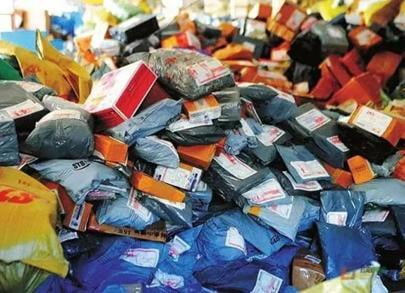
As the world's largest integrated e-commerce platform, Amazon has introduced the Minimalist Packaging Certification and Incentive Policy to encourage platform merchants to develop, certify and use packaging that both saves space and materials and protects products by providing cash incentives. On the official website, Amazon also provides merchants with detailed step-by-step guidelines and examples of minimalist packaging development and certification.
To better implement this, Green Queen, a sustainability platform, suggests that consumers can also take the following steps to reduce the environmental impact of their orders.
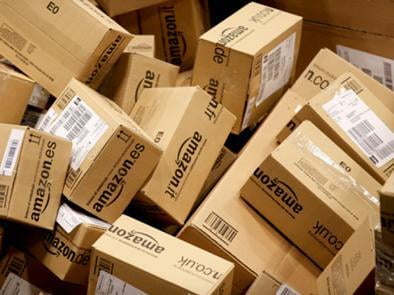
(1) Contact Amazon customer service and ask to make a note in your account that plastic packaging or non-essential packaging is not used on orders placed on that account, whenever possible. Polly Barks, a zero-waste educator, said that after she made that request, 60 percent of her orders did not use plastic packaging.
(2) Use Amazon's "Packaging Made Simple" service. The service requires merchants to reduce the use of unnecessary layers of packaging or boxes within boxes, and instead use recyclable boxes of appropriate size, and such boxes usually do not contain plastic. The service covers about 300,000 items, and before shopping, consumers can check whether the service is available for the item they want.
(3) Require multiple items to be shipped together. If multiple items are ordered from different merchants, consumers can request that all items be placed in one package to reduce the amount of cardboard and plastic packaging used, resulting in less packaging waste.
(4) Reuse of packaging. After a package is unpacked, consumers can extend the life of the package as long as possible by reusing, upcycling, and properly sorting and recycling. If unsure how to properly dispose of packaging, consumers can check out the "Amazon Second Chance" page for more information on the various packaging types used by Amazon.
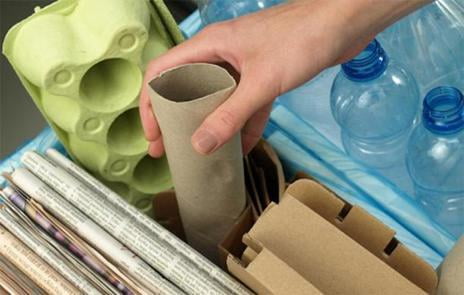
Target, a cross-border e-commerce platform created by Target Stores, the second largest retail department store group in the U.S., is very active in plastic reduction. According to the Target Corporate Responsibility Report 2021 (the "Target Report"), Target plans to reduce the annual use of virgin plastics in its private label packaging by 20% and to have 20% post-consumer recycled plastic content in its packaging by 2025, while improving packaging design to make 100% of private label plastic packaging recyclable, compostable or reusable.
Target also hopes that by 2025, 2 of its private brands will be circular economy brands; and by 2040, all of its private brand products will be circular economy compliant.
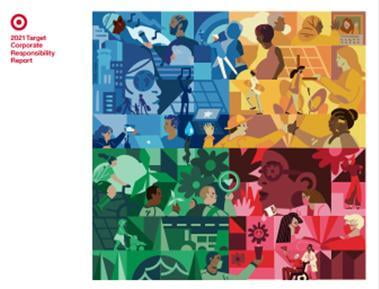
The Target Report mentions that Target's private label business in the essentials, food and beauty categories used a total of 70,413 tons of virgin plastic packaging in 2020. In 2021 Target hopes to reduce the use of virgin plastic packaging in the above categories by 20%. In addition, by 2020, more than 40% of Target's plastic bags are composed of recycled materials.
In 2020, Target joined with retail industry partners to create the Reinventing the Retail Bag Alliance to collaborate on packaging innovation, and Target said they will continue to invest in innovative designs to create products that are more durable and easy to reuse or repurpose.
For recycling, Target has added the "How2Recycle.info" website label to its private label food, beverage, beauty and essentials packaging to make it easier for consumers to dispose of their packaging, so they can access all the packaging recycling information they need.
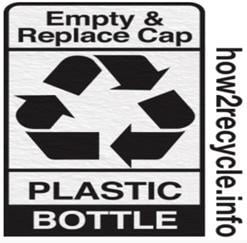
In March 2022, Target launched its "Target Zero" program to reduce resource waste and introduced a range of products with the "Target Zero" label in its online and offline stores. The packaging of these products has one or more of the following characteristics.
(1) Refillable.
(2) Recyclable.
(3) Use of compostable materials.
(4) Use of more easily recyclable materials such as paper, aluminum, steel or glass to replace plastic.
(5) Packaging materials with more than 30% post-consumer recycled plastic content.
(6) Use of concentrated materials to reduce the amount of water used for packaging.
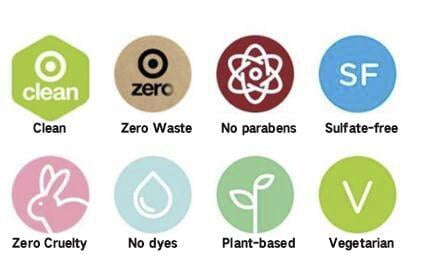
Under the German Extended Producer Responsibility Packaging Act, starting July 1, 2022, sellers selling packaged items to German buyers through the online auction and shopping site eBay will be required to register an account and to register product packaging, shipping overpacks, filling materials, and service packaging (such as tote bags) with extended producer responsibility in the form of increased taxes and fees. In the event of a violation, eBay may legally restrict the seller's permission to sell in the German marketplace.
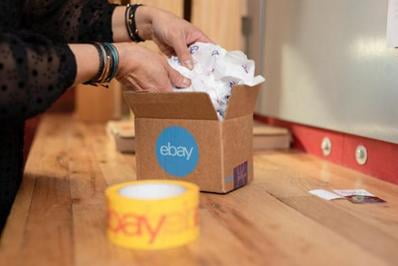
In addition, France's Law against Waste and for the Promotion of the Circular Economy stipulates that from January 2022, sellers selling items in a specific category to French consumers through eBay must comply with the French extended producer responsibility regulations applicable to that product category, register through the relevant company, and provide some additional information in the product listing on the eBay France site, such as information related to the item, packaging and The unique identification number associated with the product, the packaging and the paper information in the package, the recycling fee, the recycling policy, etc. In case of violation, eBay has the right to take necessary measures to take down or restrict the sale of the product.
As one of the fastest growing fashion e-commerce companies in Southeast Asia, Singapore-based shopping platform Zalora says they take the environmental impact of their packaging seriously and will prioritize the use of recycled plastic over virgin plastic packaging and work to find more sustainable materials to replace traditional packaging materials.
Zalora's annual sustainability report shows that by 2020, Zalora has already switched to recycled plastic for 80% of its packaging in Malaysia, Singapore, Hong Kong and Taiwan; other operating countries and regions such as Indonesia and the Philippines have also been using this program. As of April 2020, 65% of Zalora's private label suppliers have switched to recycled plastic packaging.
Zalora hopes that by 2022 they will have replaced 100% of traditional plastic bags with recycled plastic bags and that by 2025 the volume of plastic packaging will be reduced by 40% compared to 2020.
Avocadostore, Germany's largest online marketplace for eco-fashion and green lifestyle, is an e-commerce platform dedicated to providing sustainable alternatives for every traditional product. Currently, the platform has over 900 suppliers and manufacturers selling 200,000 sustainable products.
Avocadostore has developed 10 sustainability criteria for its platform products, and platform providers are required to demonstrate which criteria their products meet and display them directly on the product page.
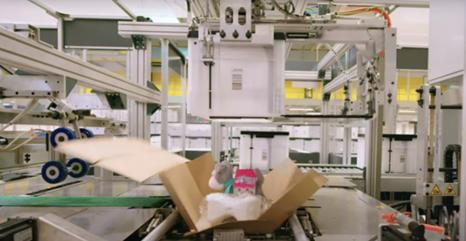
Avocadostore promotes improved product design to enhance the durability of its products. And in the production process, the platform promotes the use of organic agricultural raw materials, renewable raw materials or recyclable and compostable recycled materials, such as bamboo, flax, hemp, organic cotton, etc., in order to reduce the consumption of resources and improve the recycling characteristics of the products.
For environmental management, the platform encourages innovative technologies, while using recycled waste to generate energy to reduce the amount of raw materials and waste, electricity and water consumption. During transportation, the platform requires the use of fewer packaging materials to improve the environmental friendliness of products.
Bol.com is the largest e-commerce platform in the Benelux region and is based in the Netherlands. The platform is popular with Dutch and Belgian consumers, and its sales of electronics, books, toys and other products far exceed those of Amazon.
Bol.com's "Logistics and the Environment - Climate Neutral by 2025" page mentions that the platform wants to minimize the environmental impact of its packaging and create more sustainable packaging; and commits that by 2025, the cardboard boxes it uses By 2025, the platform will be 100% carbon neutral or 100% recyclable, and 100% of cardboard waste from distribution centers will be recycled.
In terms of packaging reduction, as of 2020, the platform is already using 12% less packaging material per item than in 2019. Specifically, 75% of Bol.com delivery packages no longer contain filler material; the platform will not use cartons with the Bol.com logo to save packaging material if the product's original packaging is strong enough.
Bol.com will also introduce more advanced packaging machines to efficiently pack products of different sizes in one box, improve the fit of the packaging, reduce air in the packaging, and help the platform save more packaging materials while improving the efficiency of logistics arrangements.


